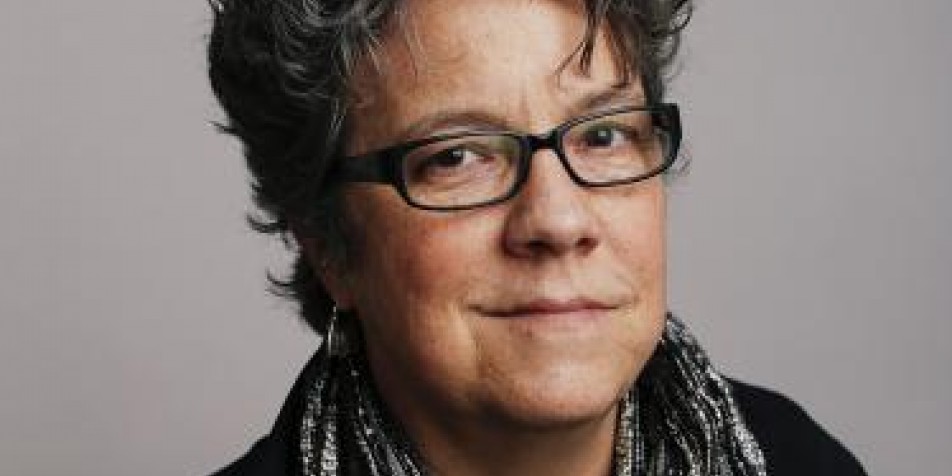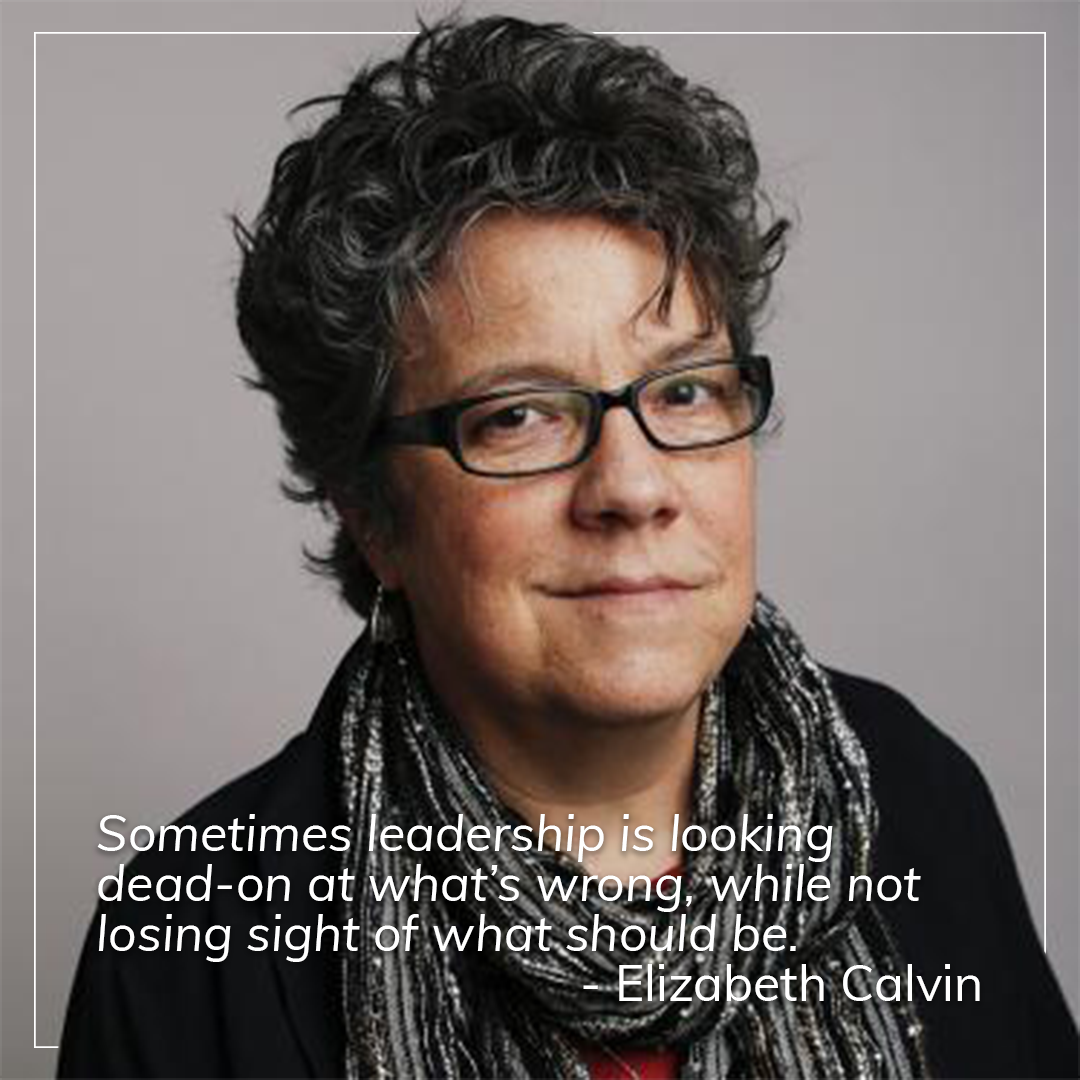2019 Leadership Prize Winner, Elizabeth Calvin, on Grounded Leadership

Elizabeth Calvin is a winner of the 2019 Leadership Prize and the senior advocate in the Children’s Rights Division and an attorney with experience in youth justice, foster care, and education rights at Human Rights Watch. We asked her to share some thoughts about her work, leadership, and her vision for the future.

Standing with People
I am an advocate in the Children’s Rights Division of Human Rights Watch, where I work to reduce—and I hope one day, end—incarceration for youth and young adults. I’ve led efforts to create laws in California that give hope to children sentenced to die in prison; make real the possibility of release from prison for children and young adults up to age 26 sentenced to adult prison terms; change how prisons treat transition-age youth entering prison, making it more likely they will get access to education and services; change how and whether a child will be sent to the adult criminal system, thereby reducing the number of children tried as adults; create new protections for children facing police interrogation; and ended the prosecution of children under age 16 as adults.
I’m most comfortable standing with people who are on the outer edge, people that society has tended to banish or treat like they are throw-aways. Through my work I’ve met the most amazing, deep and good people who have survived incredible harms. My relationships with the people I work for are a huge gift in my life. They inspire me, heal me, make me laugh, and cry, and cheer. They make my life rich, and I am, pretty much every day, grateful for the work I get to do in large part because of the people I get to do it with.
Prisons Squander Human Potential
The disaster of locking up young people isn’t just the harm that is done to their personal lives or families and communities: everyone loses when young people are not given the tools they need to grow and succeed. We lose the beautiful things young people have to offer.
When I walk out of a prison and stand, looking back in through barb wire and lethal electric fencing, all I can see are huge, concrete walled, blank buildings that hide what is inside: literally thousands of people locked into rows of small boxes. It’s a squandering of human life and potential. When you know that most people inside will, with even a minimal amount of help and opportunity, grab the chance to thrive and give back, it’s horrifying. All sentencing laws, all ways of dealing with young people who are accused of crimes, need to be overhauled.
On Leadership
To me, a good leader is first and foremost a collaborator, someone who reaches out to others, draws people in, helps them work together, respects what people bring to the table, and encourages others to speak up. So, not someone who needs to be the center of attention. My vision of a leader is someone who stands behind and pushes others forward. But there are also times that leading means being the only one who’s willing to step into a void: something needs doing and no one else will do it, maybe because the task seems too hard, or it will make people mad, or maybe others don’t even see the problem that needs fixing. Sometimes being a leader means stepping into that void, exposing the problem and then talking others into joining together to act.
Sometimes leadership is being willing to fight for something, even when everyone says you’re going to lose. It’s being grounded in what’s happening in the world right now, looking dead-on at what’s wrong, while not losing sight of what should be.
On The Tipping Point
I believe, I hope, that society will look back on this time and recognize the intense harm the so-called justice system has inflicted on people of color. I hope that recognition comes with real reparations.
So many people across the country have worked to achieve dramatic changes to how young people are treated by the state. Changes that seemed impossible just a few years ago are speeding forward. My hope is that we’re at a tipping point where some really big shifts, like closing youth prisons across many states and increasing the role of community-based responses to young people in conflict with the law. In California, while formerly incarcerated people have been a part of every reform, we now have had an exponential increase in the number of young people who have gotten out of prison, and we have many who are leading the next wave of changes. I hope that leadership continues to grow.